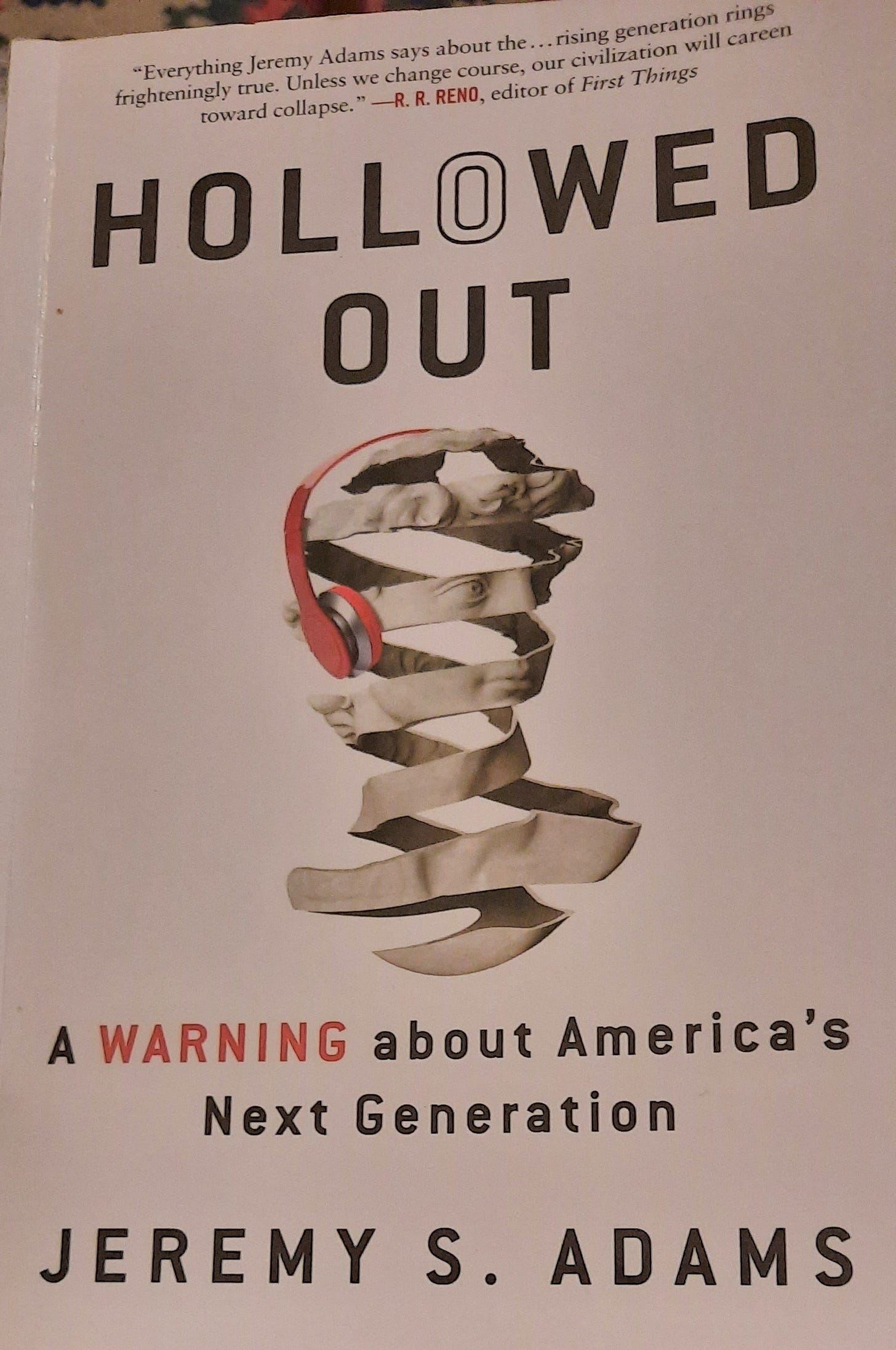What I read in January
Like many people I know, I made a new year’s resolution to read more books. To help me keep track, and in case it might inspire anyone else, I’ve decided to write about what I read this year.
I kicked off with a Christmas present, The Breaking of Bumbo by Andrew Sinclair.
I love the look and feel of 1950’s Penguin Books with the distinctive orange spines. I love the way novels from this period are still innovative and vital; you can feel the authors pushing the boundaries of form and content. At the same time, they also offer a fascinating insight into social history. The Breaking of Bumbo is a classic coming of age story. Our very young hero learns about alcohol, women, sex, money and leadership - all while undertaking national service. But as well as being poignant this is also a fast-paced and still laugh-out-loud comic novel.
Next I turned to a book I picked up at a Parents Unite conference in Boston last October.
In Hollowed Out, teacher Jeremy S. Adams looks at what’s happening to America’s children. His primary focus is on education but he also writes about the impact of family life, technology, media and culture more broadly on the next generation. The conclusions are damning - we are producing a hollowed out generation - disengaged, alienated and anxious. But Adams writes with such passion and such a deep-rooted conviction in the power of education, the love of family, and the beauty of western civilisation that, far from being depressing, Hollowed Out compels readers to lead by example and aspire to do better by young people.
Adams inspired me to want to fill in gaps in my knowledge of Greek and Roman history. So the third book I read in January was Greek and Roman Political Ideas by Melissa Lane. This is a Pelican Introduction to the topic, but it is sufficiently detailed to leave most readers knowing more. It covers the works of Socrates, Plato, Aristotle and Cicero in discussions about the meaning of democracy, citizenship, sovereignty and what constitutes a life well-lived.
My fourth book brought me back down to earth with a bump. I felt obliged to read Abolish the Family by Sophie Lewis after hearing the author on an episode of Radio 4’s Moral Maze that discussed the ethics of the family. This book has three things going for it. It provides a useful overview of the history of anti-family thought stretching right back to the work of the French utopian socialist Charles Fourier. It makes clear the utterly nihilistic nature of today’s anti-family sentiment: the family is a site of abuse, where backward parents stand in the way of their more enlightened children. Instead of the family, Lewis proposes ‘a glorious and abundant nothing.’ But the best thing about this book is that it is very short.
For light relief I turned to Agatha Christie. Over Christmas, I watched Lucy Worsley’s brilliant BBC series on ‘The Mystery Queen’.
It inspired me to read two of Christie’s early Poirot books, The Mysterious Affair at Styles and The Murder of Roger Ackroyd.
Worsley explains how both of these stories challenged typical detective genre conventions and pushed back against readers’ expectations in relation to women and social class. Yet, more than anything, Christie is just a wonderful story teller.
Let me know if you have read any of these books or if you have suggestions for what I should read in February in the comments below!




